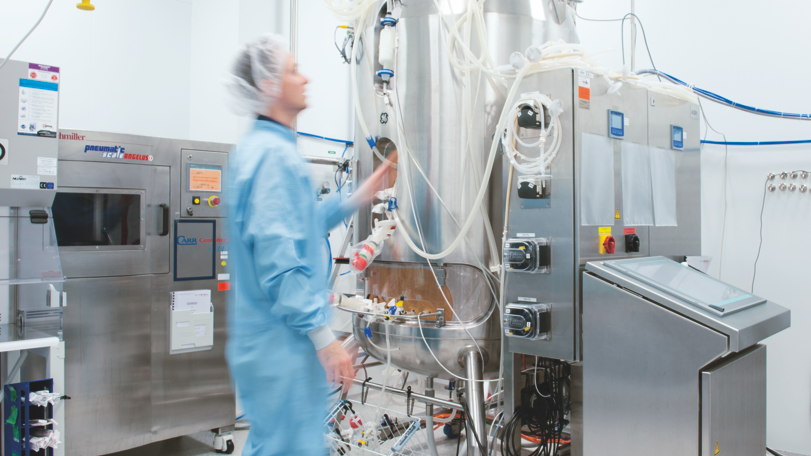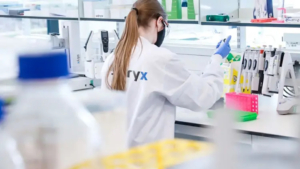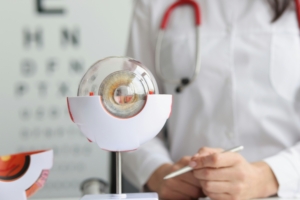
Expanding into the commercial supply space
Celonic AG has pursued an ambitious expansion strategy in mammalian cell line contract manufacturing to establish Phase III and commercial supply by mid-2019. A new GMP facility in Heidelberg was acquired, and capacity is also being expanded at the headquarters in Basel. European Biotechnology spoke with Franzpeter Bracht, COO of Celonic, about Celonic's strategy.
EuroBiotech_ Where does Celonic stand today, and where do you want to place your company in the long term?
Bracht_The acquisition of Glycotope’s manufacturing business we announced last winter is the starting point for a major expansion of our business focus. We have looked for awhile for a strategic acquisition to expand Celonic’s business focus from clinical trial supply to Phase III and commercial GMP manufacturing, which would allow long-term partnerships from early to commercial phases. In Basel, however, we were very confined, and a capacity expansion was a clear strategic focus for us. So, we thought about how to establish an integrated development site in Basel, where we can do everything from cell line development to tox batches and identify another site, where we can produce GMP-compliantly and accelerate GMP capacity growth. Glycotope’s Heidelberg site was the optimal fit.
EuroBiotech_ Could you describe why?
Bracht_With the takeover we added five suites to our biomanufacturing capacity, with fermenters ranging from 50 to 1,000 litres, both in single-use and stainless steel. We have already finalised the design for the next growth step in Heidelberg, a 2,500 sqm production hall. By mid-2019, we will start GMP production in three suites there, two with 2-3×2,000 litre fermenters each, and one suite with a 1,000 litre perfusion reactor. This expansion of scale marks the change from a CDMO for clinical supply to
a manufacturer of Phase III and commercial supply, according to FDA
and EMA standards. At the Heidel-berg site, Celonic will have enough space for further GMP capacity expansion.
EuroBiotech_ To what extent will customers be able to benefit from Glycotope’s GEX platform in addition to Celonic’s proprietary CHOvolution cell line?
Bracht_ Celonic will also benefit from Glycotope’s 20-year successful track record producing highly glycosylated proteins in fed-batch and perfusion processes, and its proprietary human GEX cell line. We acquired a non-exclusive licence. So, we are now able not only to produce monoclonal antibodies at up to 7g/l with Celonic’s proprietary CHOvolution CHO K1 cell line, but also bispecific antibodies, hormones, or other complex biologics products with human glycosylation pattern in GEX cells. So, the acquisition has fairly broadened Celonic’s customer base: we can produce in fed-batch and perfusion, in CHO and in human cell lines, and with the capacity expansion we will serve companies from early development to commercial supply, as well as biosimilar producers looking to be first to the market. That gives Celonic more long-term perspective and allows optimisation of business processes.
EuroBiotech_ Celonic has been part of JRS since 2011. What role does the
financial backing of the Rettenmaier family play for your company and its strategy?
Bracht_ Without financial backing from the Rettenmaier family we would not be able to execute an expansion such as currently in Basel and Heidelberg, where we want to start GMP production in mid-2019. It also provides an opportunity to shape business models built around risk sharing for the biotech companies and thus facilitates a real win-win situation.
EuroBiotech_Novel molecule formats such as bispecifics currently flood biopharma pipelines for personalised medicines. How does Celonics manage this technological challenge?
Bracht_ We already have two bispecif- ics in production. We have experience with achieving improved yields by switching production from CHO to GEX cells in perfusion reactors. So we are
flexible enough and have experience with new formats, such as bispecifics and ADCs, while living up to total quality management.
EuroBiotech_The CDMO market is characterised by strong demand but also huge competition. Where do you want to go?
Bracht_Currently, the market is large enough for all CDMOs. Particularly, the demand for contract manufacturing in the 1,000 to 2,000l range is growing steeply. All projections say that most future products will lie in that production range we are building in the moment. We are focussed on establishing long-term partnerships with biotech SMEs that want to produce orphan drugs, personalised meds, biosimilars etc. Currently, we are producing an in-vivo-antibody diagnostic commercially. We will add a second commercial product in 2019.
EuroBiotech_What are your next goals?
Bracht_This year, we hope to complete the integration of Glycotope and expansion in Heidelberg and the transformation of our Basel site. In the longer term, we will expand our filling capabilities and look for FDA-accepted methods for continous downstream processing.
First published in European Biotechnology Magazine Spring 2018 edition


 Sitryx Therapeutics
Sitryx Therapeutics
